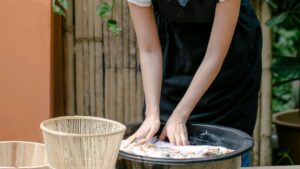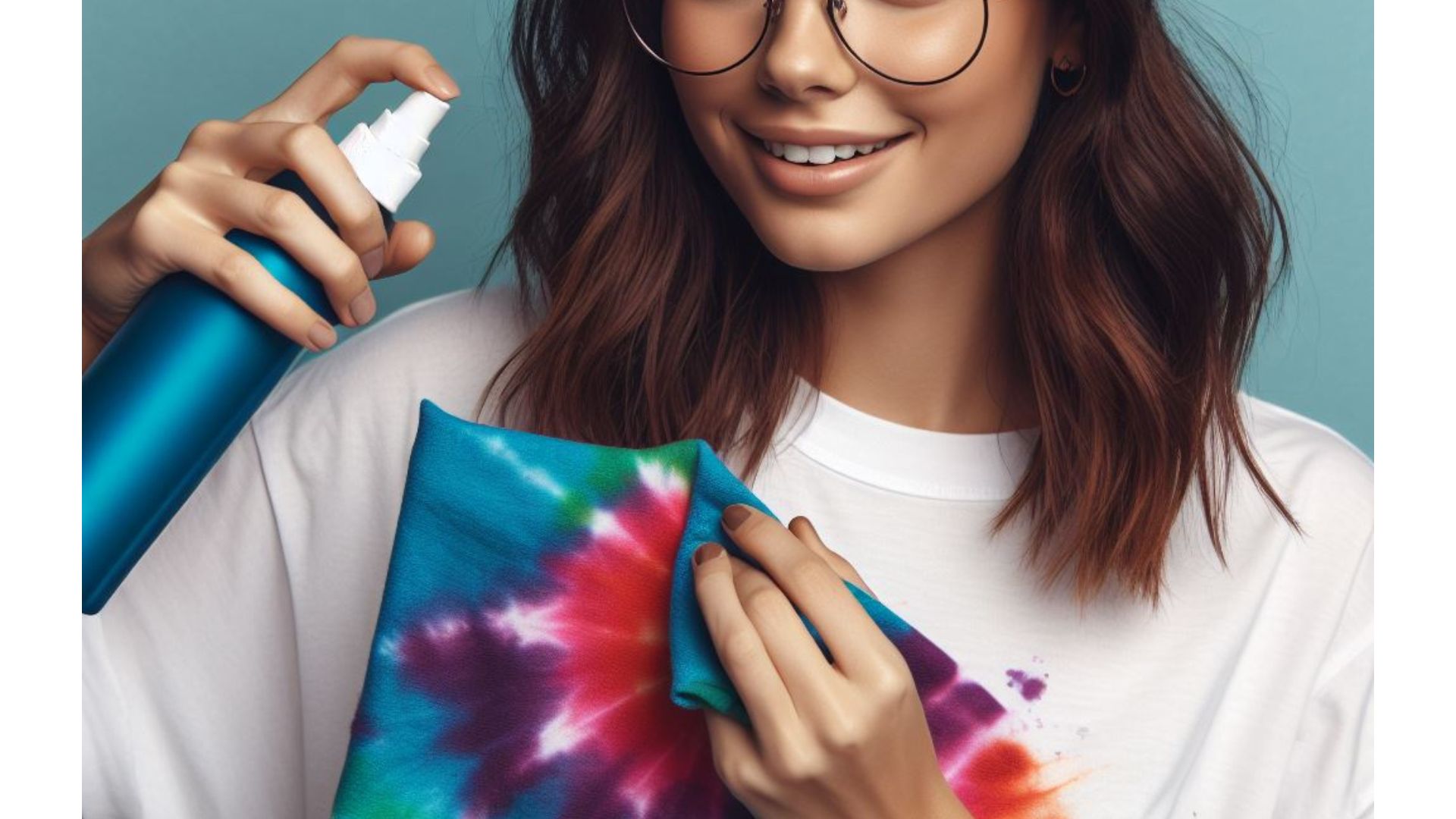Tie-dyeing is an art form that allows for boundless creativity and personal expression. The fusion of colors and patterns can yield stunning results, and layering colors adds depth and complexity to your designs. But what about timing? Can you let tie-dye sit longer when layering colors?
Understanding the Tie-Dye Process
Before diving into the timing, let’s grasp the tie-dye process. When you apply dye to fabric, the color chemically bonds with the fibers. This reaction requires time, allowing the dye to penetrate the material and create vivid hues.
Layering Colors: Timing Tips
When layering colors in tie-dye, consider these factors:
1. Dye Absorption and Saturation
- Base Layer: Start with the lightest color or the one you want as the base. Apply it first and allow it to set for the recommended time, ensuring thorough saturation.
- Layering: For subsequent layers, keep in mind that the fabric might already be saturated with the first color. Adding more dye could lead to longer absorption times.

2. Patience is Key
- Time Allocation: Generally, tie-dye instructions suggest leaving the dye to set for 6-8 hours or overnight for optimal vibrancy.
- Layering Consideration: If you’re layering colors, patience becomes pivotal. Extending the dye’s setting time might intensify the colors and deepen the overall design.
3. Experiment and Test
- Trial Runs: Conducting test swatches or small-scale experiments allows you to gauge how the colors interact and how long each layer requires to achieve the desired vibrancy.
- Observation: Check the fabric periodically to track color development. If you notice the subsequent layers aren’t penetrating well, extending the setting time could be beneficial.
So,….
Layering colors in tie-dye is an incredible way to create unique, multi-dimensional designs. While you can let tie-dye sit longer when layering colors, it’s crucial to find the balance between saturation and absorption time. Experimentation and patience are your allies in achieving breathtaking tie-dye masterpieces.
Tie-dyeing is an exciting journey of artistic exploration. Embrace the process, allow your creativity to flow, and experiment with different timing techniques to unleash the full spectrum of colors in your designs.
Mastering the Art of Layered Tie-Dye: Unveiling the Creative Spectrum
Delving Deeper into Layering Techniques
4. Consider Dye Types
- Protein vs. Cellulose Fibers: Dye absorption rates vary between different fabric types. Protein fibers like silk and wool absorb colors quicker than cellulose fibers such as cotton. Understanding your fabric’s composition helps in gauging dye absorption and setting times for layered designs.
5. Dye Fixation
- Rinse and Fix: After allowing the dye to set, rinsing the fabric helps remove excess dye. Fix the colors by following the specific instructions provided with your dye. Proper fixation ensures colorfastness and prevents bleeding.
6. Environmental Factors
- Temperature and Humidity: These factors can influence dye absorption and setting times. Warmer temperatures often accelerate the chemical reactions between the dye and fabric, while high humidity might slow down the process.
Addressing Common Queries
1. Can I let tie-dye sit for days when layering colors?
- While extending the setting time can deepen colors, leaving tie-dye for days might not yield significantly brighter hues. It’s best to balance patience with practicality to achieve desired results without compromising fabric quality.
2. Should I wash between layers when tie-dyeing?
- Washing between layers isn’t necessary. However, if you’re concerned about color bleed or want cleaner separation between colors, rinsing lightly before applying the next layer can be beneficial.
3. How do I prevent colors from bleeding into each other?
- Ensuring proper saturation of each layer and allowing sufficient setting time between colors minimizes bleeding. Additionally, using thicker dye solutions or utilizing dye-thickening agents helps control color spread.
Final Thoughts
Layering colors in tie-dye offers a canvas for boundless creativity. Embrace experimentation, learn from each creation, and refine your techniques to unlock the full potential of layered tie-dye designs.
Remember, timing is an art in itself. Balancing patience, experimentation, and understanding the nuances of dye absorption sets the stage for awe-inspiring tie-dye creations. Let your imagination flourish, and may your tie-dye adventures be vibrant and joyful!
Explore these resources for further insights into tie-dye techniques and inspiration:
- Tie-Dye Techniques for Beginners – Artists Network
- Advanced Tie-Dye Techniques – The Spruce Crafts
- Tie-Dye Inspiration Gallery – Pinterest
- Tie-Dye Folding Techniques – Tie Dye Your Summer
- Creating Patterns in Tie-Dye – Dharma Trading Co.
- Color Theory in Tie-Dye – Tie Dye Your Summer
Remember, each creation is a reflection of your imagination and experimentation.
Comparison tabula
| Aspect | Layering Colors in Tie-Dye | Single Color Application |
|---|---|---|
| Dye Absorption | Varies between layers, may require longer setting times | Typically quicker absorption due to single application |
| Color Depth | Multi-dimensional and vibrant due to layering | Solid color appearance |
| Time Investment | Longer setting times for each layer, more patience required | Single application with standard setting time |
| Complexity | Offers intricate and varied designs | Simpler, uniform patterns |
| Experimentation | Encourages experimenting with color combinations and effects | Limited scope for mixing colors |
| Control Over Design | Greater control over creating intricate patterns | Limited control over multicolored designs |
This table provides a concise comparison between layering colors in tie-dye and applying a single color, highlighting key differences in absorption, color depth, time investment, complexity, experimentation, and design control.
Wrapping up
In the colorful realm of tie-dye, the choice between layering colors or opting for a single-color application is a canvas awaiting your artistic touch. Each technique holds its own charm, offering distinct avenues for creative expression.
Layering colors in tie-dye introduces a world of possibilities, inviting you to blend hues, experiment with saturation, and craft intricate designs. It demands patience and a willingness to explore the interplay of colors, yielding multidimensional and vibrant creations that speak volumes about your imagination.
On the other hand, the simplicity of a single-color application offers elegance in its uniformity. It’s a timeless approach that speaks volumes with its clean lines and solid shades.
Ultimately, the decision between layering colors and a single-color application hinges on your artistic vision and the story you wish to convey through your tie-dye creations. Embrace the journey, relish the experimentation, and let your creativity flourish in every swirl of dye.
Whichever path you choose, may your tie-dye endeavors be filled with joy, color, and boundless self-expression. Happy tie-dyeing!

For over a decade, I’ve been Mike, an artist, crafter, and designer deeply immersed in the Croc world. I thrive on crafting unique, size-inclusive patterns, fostering creativity, and sharing them on ktforum.com. My designs aim to ignite your creative spark and delight you, ensuring clarity and ease of use through rigorous testing. Join me in expressing your creative flair and showcasing your craft with joy.
Related Posts
- Enhancing Your Tie-Dye: All About Timing with Multiple Colors
Tie-dyeing is an art form that lets your creativity soar, and using multiple colors can…
- Enhancing Tie-Dye with Embellishments: Timing Tips
Tie-dye is a vibrant, creative craft that allows for endless personalization. When it comes to…
- Reviving Your Tie-Dye: How to Reapply Dye for Better Results
Tie-dye projects are a blast, but sometimes the colors don't pop as expected due to…
- Exploring Tie-Dye: All About Timing for Intricate Designs
Tie-dyeing is an art form that lets your creativity soar, but intricate designs often demand…

